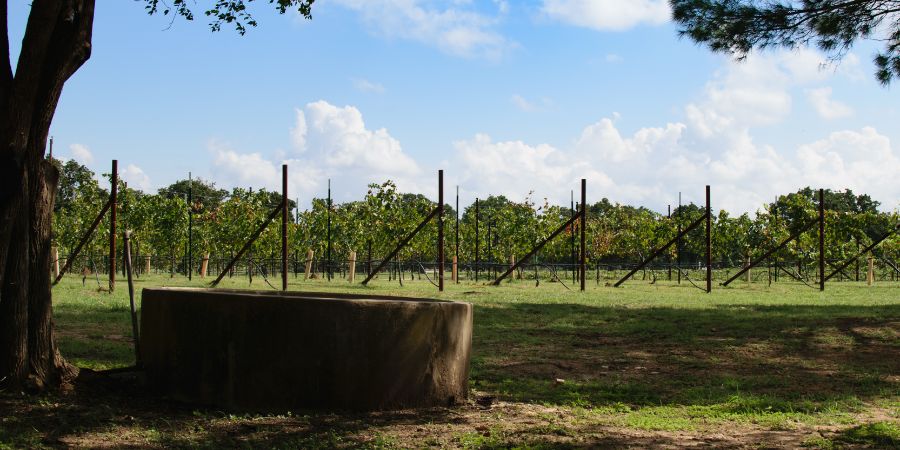As a partner and Wealth Strategist at Camas Advice, I dedicate much of my time to working with high-earners, high-net-worth individuals, and business owners. I’ve found that in the dynamic business world, smart owners keep an eye on fresh and creative strategies to ensure their growth and success continue. Many tactics are well-known, but there’s a hidden gem that banks and Fortune 500 companies use that most are unaware of: Cash Value Life Insurance. This powerful financial tool benefits businesses in various industries, including wineries and vineyards. These businesses face unique challenges, so their owners need to explore what Cash Value Life Insurance can offer. In this article, we’ll look at why business owners, especially those in the winery and vineyard industry, should learn about Cash Value Life Insurance and how this strategy can boost financial stability, supercharge growth, and create lasting success.
Cash value life insurance is a fantastic tool that can benefit business owners. It can help protect against losing a key person, provide executive benefits, fund your buy-sell agreements, provide financing or line of credit for a business, and even help with estate planning. Wineries and vineyards, just like other businesses, can use these strategies to reach their financial goals.
Let’s take a look at a few examples.
Protecting against the loss of a key person
Losing a key person can be detrimental to any business, and wineries and vineyards are no exception. Cash value life insurance can help protect against financial loss if a key person passes away unexpectedly. For example, if a winery or vineyard owner passes away, their death could significantly impact the business’s revenue and operations. The death benefit from a cash value life insurance policy can help the business recover from the financial loss and continue operating until a suitable replacement is found.
Consider a hypothetical winery, “Sunrise Valley Wines,” as an example of how cash value life insurance can protect against losing a key person. The family-owned winery took out a cash value life insurance policy on its founder, John Smith, to ensure that the business could continue in the event of his unexpected death. This forward-thinking decision demonstrates the value of cash value life insurance in providing a safety net for wineries and vineyards facing the potential loss of a key individual.
Executive benefits
Offering executive benefits can help attract and retain top talent, and cash value life insurance can be attractive. For example, providing key executives with a cash value life insurance policy can be valuable to their compensation package. The policy’s cash value can grow over time, providing a source of retirement income or funding for future business ventures.
Consider a hypothetical winery, “Vineyard Crest,” as an example of how cash value life insurance can be used as an executive benefit. The winery offered its executives a cash value life insurance policy as part of their compensation package, providing a valuable benefit to help retain top talent. This strategy demonstrates the potential of cash value life insurance in creating a competitive edge for businesses looking to secure and maintain the best industry professionals.
Funding a buy-sell agreement
A buy-sell agreement is a legal contract outlining the course of action for a business’s ownership in case of a partner’s death, disability, or departure. Cash value life insurance can effectively fund a buy-sell agreement, supplying the necessary funds to purchase a partner’s shares from their heirs or estate.
Take the hypothetical large vineyard, “Grand Estate Vineyards,” as an example of how cash value life insurance can fund a buy-sell agreement. The vineyard’s partners secured cash value life insurance policies on each other. These policies provide a death benefit in the unfortunate event of a partner’s premature death, and the tax-free death benefit ensures the availability of funds to purchase the deceased partner’s shares. In cases where a partner decides to retire or walk away, the tax-free cash value growth can help with the buy-out, minimizing the financial burden on the business in the event of a loan, payout, or both. This approach showcases the versatility of cash-value life insurance in maintaining business continuity, regardless of whether a partner’s exit is due to death, disability, or departure.
Providing financing for a business
Cash value life insurance can serve as a business financing source, often with more accessibility and flexibility than traditional bank financing. The policy’s cash value can be borrowed against, offering a source of low-interest financing. This can be especially beneficial for businesses needing capital expenditures or investing in new projects.
Consider a hypothetical vineyard, “Rolling Hills Vineyards,” as an example of how cash value life insurance can provide financing. The vineyard’s owners secured a cash value life insurance policy, and as the policy’s cash value grew over time, they could borrow against it. This borrowing strategy enabled the vineyard to access low-interest financing to cover various expenses, such as investing in new vineyards, purchasing equipment, or expanding production facilities.
Using the cash value life insurance policy as collateral, the vineyard could secure a loan with favorable terms, providing the necessary funds for its investments. Moreover, obtaining this financing or line of credit was far more accessible and more streamlined than going through the traditional bank loan process, which often involves rigorous credit checks, extensive paperwork, and a lengthy approval process. This approach illustrates the value of cash value life insurance as a versatile financial tool that can help businesses like vineyards access financing for growth and development with greater ease and convenience.
Estate planning
Cash value life insurance can be used as part of an estate planning strategy, providing a tax-efficient way to transfer wealth to future generations while preserving the family business. The policy’s death benefit can be used to pay estate taxes, provide a source of income for heirs, and ensure liquidity so that assets or business interests do not need to be sold.
Consider a hypothetical winery, “Sunset Valley Winery,” as an example of how cash value life insurance can be used as part of an estate planning strategy. The winery’s owners utilized a cash value life insurance policy to help transfer wealth to future generations, offering a tax-efficient method to pass on the family’s assets. The policy’s death benefit provided liquidity, allowing the family to avoid selling valuable assets or business interests to settle estate taxes or other expenses.
Additionally, cash value life insurance can be used to equalize an estate when multiple heirs have different interests in the family business. For instance, one heir may inherit the winery, while the other heir receives the death benefit from the life insurance policy, ensuring that both heirs are treated equitably without dividing or selling the winery. This approach allows the family to preserve their legacy and ensure the continued success of the winery for generations to come, demonstrating the strategic value of cash value life insurance in estate planning for businesses like wineries.
Summary
Cash value life insurance can be a game-changing financial instrument for business owners looking to safeguard their company’s future and achieve their long-term financial objectives. As demonstrated by the five examples shared – protecting against the loss of a key person, providing executive benefits, funding a buy-sell agreement, offering financing for your business, and planning for your estate – cash value life insurance delivers many advantages that can cater to various business needs. However, it’s essential to remember that not all life insurance policies or advisors are created equal, and the finer details in policy design are crucial.
As an experienced Wealth Strategist, I am eager to help you explore how your business, winery, or vineyard could benefit from implementing cash value life insurance. Don’t hesitate to contact me for a complimentary consultation and please mention that you discovered my article on the Protea Financial Blog. Together, we can work towards securing a prosperous future for your business.
Read on about the benefits of cash value insurance for wineries and vineyards. Contact Protea Financial today!





